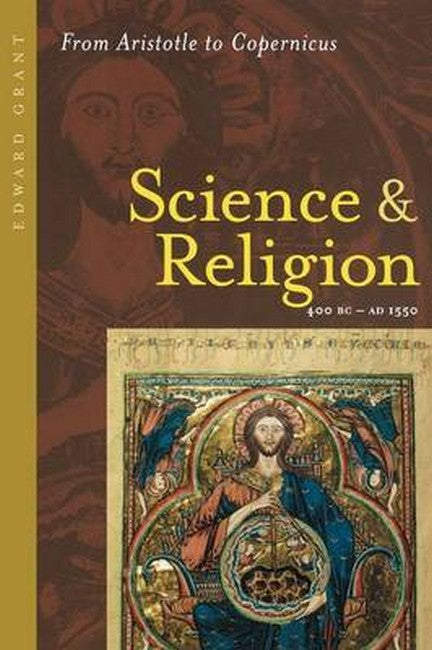IllustrationsChronology of Events1. IntroductionThe Middle Ages: A Time ofo Ignorance and Barbarism? Or a Period of Striking Innovation?Religion and Science among the Greeks prior to the Emergence of ChristianityThe Propagation of ScienceBrief Descriptions of Chapters 282. Aristotle and the Beginnings of Two Thousand Years of Natural PhilosophyLifeWorksAchievementsAristotle's Cosmos and Natural PhilosophyThe Scope of Natural Philosophy3. Science and Natural Philosophy in the Roman EmpireThe Pre-Socratic Natural PhilosophersThe Emergence and Development of the Sciences in the Greek WorldThe Life SciencesThe Exact SciencesGreek Science in the Roman Empire to the Sixth Century a.d.4. The First Six Centuries of Christianity: Christian Attitudes toward Greek Philosophy and ScienceThe Mystery Religions and AstrologyThe Triumph of Christianity in the Roman WorldChristianity and the Pagan Intellectual WorldCommentaries on Genesis (Hexameral Treatises): The Christian Understanding of the Creation of the World5. The Emergence of a New Europe after the Barbarian InvasionsThe Latin EncyclopedistsWestern Europe at Its NadirThe New Europe in the Twelfth CenturyThe Beginnings of the New Natural Philosophy6. The Medieval Universities and the Impact of Aristotle's Natural PhilosophyThe Translations of Aristotle's Books on Natural PhilosophyUniversities in the Middle AgesTypes of Literature in Natural PhilosophyThe Relations between Natural Philosophy and Theology in the Thirteenth CenturyIs Theology a Science?7. The Interrelations between Natural Philosophy and Theology in the Fourteenth and Fifteenth CenturiesThe Influence of the Condemnation of 1277 on Natural PhilosophyThe Impact of Religion on Natural Philosophy in the Middle AgesThe Role of Natural Philosophy in TheologyThe Significance and Meaning of the Interaction between Natural Philosophy and TheologyRelations between Science and Religion in the Byzantine Empire, the World of Islam, and the Latin WestThe Byzantine EmpireIslamThe Latin WestPrimary Sources1. Roger Bacon, The ""Opus Majus"" of Roger Bacon2. Giles of Rome, Errores Philosophorum3. Saint Bonaventure, On the Eternity of the World (De Aeternitate Mundi)4. Saint Thomas Aquinas, On the Eternity of the World (De Aeternitate Mundi)5. Albert of Saxony, Questions on [Aristotle's] On the Heavens6. Nicole Oresme, Le Livre du ciel et du mondeAnnotated BibliographyIndex

